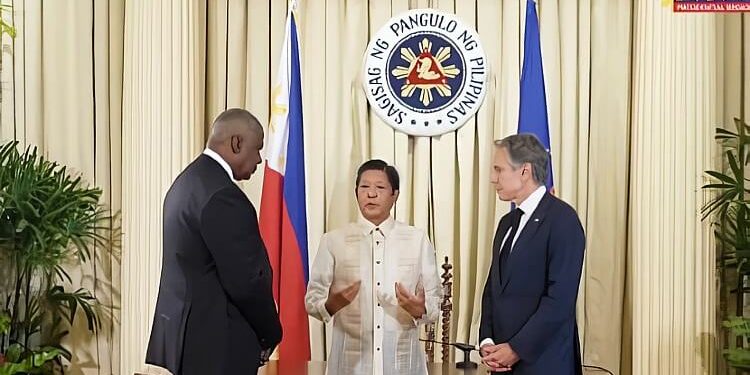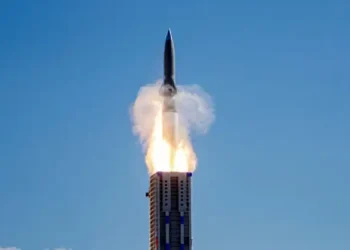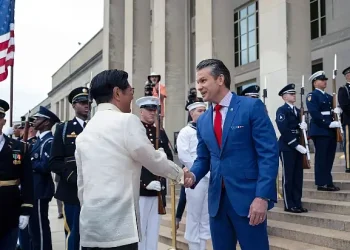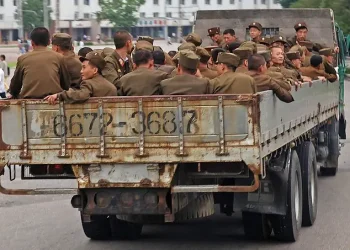The U.S. Secretary of Defense Lloyd J. Austin III and Secretary of State Antony Blinken met with Philippine President Ferdinand Marcos Jr. in Manila today.
This high-level meeting emphasized the enduring strength of the U.S.-Philippines alliance, especially in light of escalating regional tensions.
The talks focused on bolstering bilateral cooperation to ensure a free and open Indo-Pacific, with particular attention to security and sovereignty issues.
Areas Discussed
The meeting addressed several vital agenda:
- Strengthening Sovereignty: Both U.S. officials reaffirmed their support for the Philippines in defending its sovereign rights, particularly in the West Philippine Sea (WPS). The dialogue underscored the importance of international law, including the right to navigate freely in the region.
- Regional Security Cooperation: The discussion included strategies for enhanced cooperation with other like-minded nations, such as Australia and Japan, to uphold shared principles like the rule of law and freedom of the seas.
- Humanitarian Assistance: The U.S. expressed condolences for the victims of Typhoon Carina and pledged support for disaster relief efforts.
Enhancing U.S.-Philippines Defense Ties
The meeting also highlighted ongoing efforts to strengthen defense and security ties between the two nations. The U.S. and the Philippines have been working closely to enhance military cooperation, focusing on:
- Joint Military Exercises: Expanding joint training and exercises to improve operational readiness and interoperability.
- Defense Equipment and Technology: Enhancing the capabilities of the Armed Forces of the Philippines through advanced equipment and technology transfer.
- Strategic Dialogues: Continuation of high-level dialogues to ensure coordinated responses to regional security challenges.
Areas of U.S.-Philippines Cooperation
Area of Cooperation |
Initiatives |
Outcomes Targeted |
|---|---|---|
| Sovereignty Protection | Joint patrols and defense support | Enhanced maritime security |
| Humanitarian Assistance | Disaster response and relief | Swift and effective aid deployment |
| Defense Modernization | Technology transfer and military aid | Upgraded defense capabilities |
| Regional Security | Collaboration with allies | Strengthened regional security frameworks |
U.S. and Philippines: A Longstanding Alliance
President Marcos hailed the strong and evolving partnership between the Philippines and the U.S., emphasizing the importance of maintaining open communication channels.
He noted that this relationship is vital for addressing both current and future challenges in the region. The U.S. counterparts echoed this sentiment, highlighting the “family-like” bond between the two nations.
Austin said,
“It always feels that way when I’m working with our colleagues. You know, we have common interests, common values, and so I think we’ve done a lot over the last three and a half years to continue to strengthen our alliance, and we look forward to continuing to work with you and your team to move even further,”
Impact on Regional Stability
The U.S.-Philippines alliance plays a crucial role in maintaining stability in the Indo-Pacific region. This is particularly relevant given recent incidents involving Chinese vessels in the WPS. The U.S. has consistently supported the Philippines’ stance on upholding international law and ensuring regional security.
Final Thoughts
The meeting between Secretary Austin, Secretary Blinken, and President Marcos Jr. signifies a reaffirmation of the strong ties between the U.S. and the Philippines.
As both nations continue to navigate complex geopolitical landscapes, their commitment to shared values and mutual support remains steadfast.
This alliance is not just a strategic partnership but a familial bond that promises a more secure and prosperous future for the Indo-Pacific region.
Sources: THX News, US Department of Defense & Philippine News Agency.









